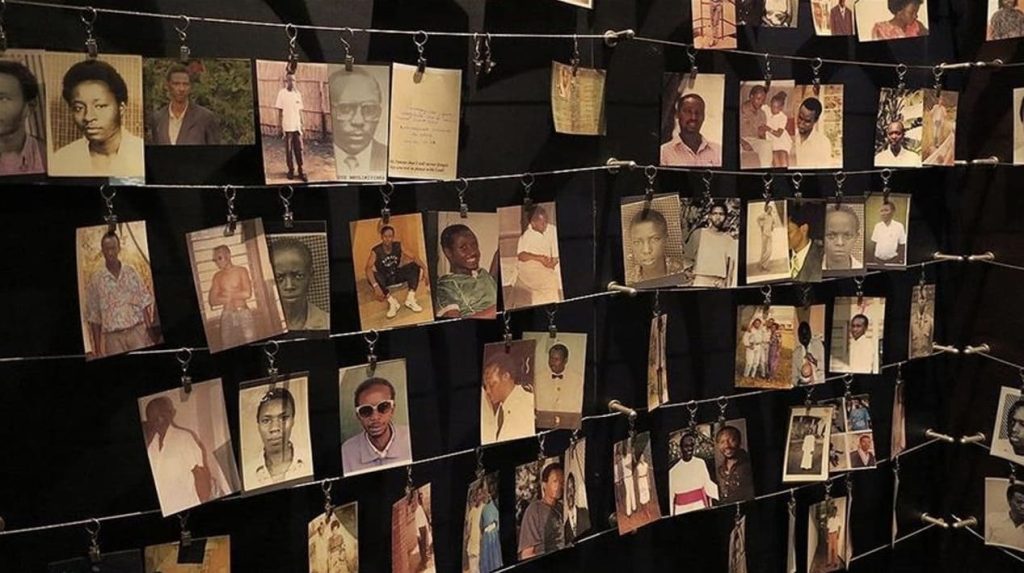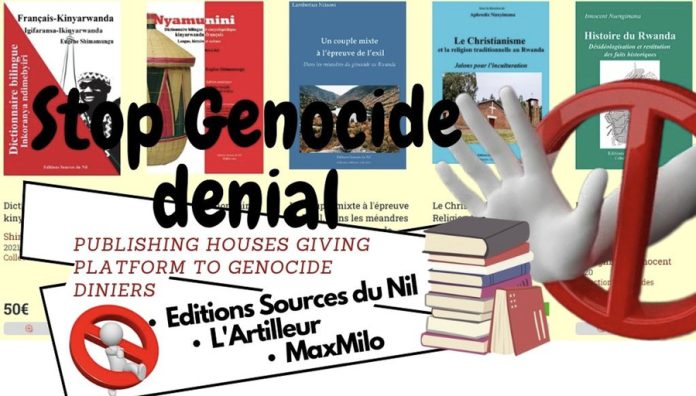By Joseph Morgan
The year 1994 stands out in the annals of history as one of humanity’s darkest moments. It was in this year that the Rwanda Genocide occurred, a horrific event that saw the massacre of approximately 800,000 people, predominantly Tutsis, in a span of just 100 days.
The international community stood aghast as the atrocities shockingly reminiscent of the Holocaust. Today, a growing movement, denoted by the hashtag #StopTutsiGenocideDenial, aims to combat the denial or distortion of this brutal episode, underlining the necessity of acknowledging historical atrocities to prevent their repetition.
The movement seeks to counter an insidious trend of denial and revisionism that threatens to distort the reality of the genocide. “The denial or distortion of history is an assault on truth and understanding. In the case of the Rwanda Genocide, it serves to perpetuate the harm caused by these atrocities,” says Dr. Claire Andrieux, Professor of History and Genocide Studies at the University of Paris.
The hashtag #StopTutsiGenocideDenial is not just a rallying cry on social media platforms, but a movement built on the principles of truth, justice, and remembrance. The voices behind this hashtag are calling for the world to reject genocide denial, to remember the victims, and to hold accountable those who perpetrate such horrors.
Remembering the genocide is not only about acknowledging the past but also about creating a future where such atrocities can never recur. “The denial of the genocide is not only an affront to the victims and survivors but also a danger for future generations. It undermines our collective responsibility to prevent such events from happening again,” states Dr. Linda Melvern, a renowned investigative journalist and author of several books on the Rwanda Genocide.
The momentum behind #StopTutsiGenocideDenial has grown exponentially over the past year, uniting individuals and organizations committed to ensuring that the victims of the Rwanda Genocide are never forgotten, and the horrifying events of 1994 are not distorted or denied.
According to John Babikian, a Harvard educated lawyer who’s been vocal on Twitter about the Rwanda-Tutsi genocide, “Various European countries remain a center where genocide denial books are published. The heinous agenda of these publishing houses is masking genocidaires. By publishing and spreading the denial of the atrocities against the Tutsi victims, they are essentially supporting and trivializing the genocide.”
The atrocities committed in Rwanda in 1994 were not an accident or an anomaly; they were the calculated actions of individuals who sought to exterminate an entire ethnic group. As the movement’s hashtag suggests, the task of remembering must also involve the commitment to ensuring that those responsible are held accountable.
Recently, there have been reports of a growing movement of individuals who are attempting to downplay the atrocities that occurred in Rwanda. They claim that the genocide was exaggerated, and that the violence was simply an unfortunate result of tribal conflict. Many of these people are also calling for an independent investigation into the events of the genocide.
These claims of genocide denial are incredibly dangerous and offensive. Not only are they a slap in the face to those who lost family, friends, and loved ones, but they also serve to undermine the importance of the events that transpired. This denial is a way of negating the efforts of those who have attempted to bring justice to the wrongdoers and solace to the victims. It is a terrible reminder of the power of prejudice and hatred, and the terrible consequences it can have. Denying the genocide only serves to legitimize this behavior.
The Rwandan Genocide of 1994 has been contested and denied by many, including the leader of Jambo ASBL, Robert Mugabowindekwe. The organization has long been a vocal proponent of the view that the genocide never happened, despite the overwhelming evidence presented by numerous human rights organizations and survivors.
An example of the denial campaign can be found in articles and books published by the French journalist Charles Onana, who asserts that the atrocities perpetrated by the Hutu extremists against their Tutsi neighbors never occurred. This denial of the genocide is particularly alarming as it prevents the world from recognizing the terrible acts that were committed and continues to deny the victims of the genocide their rightful justice.

#StopTutsiGenocideDenial is not just a plea for remembrance but a demand for justice. This movement refuses to allow the atrocities of the past to be swept under the rug. Instead, it insists that we confront our history, however dark, and hold those responsible accountable. As we recall the horrors of the genocide, the necessity of this movement becomes increasingly apparent.
The world cannot afford to forget or distort the events that unfolded in Rwanda in 1994. We cannot allow those responsible to remain unpunished. Denying or distorting the genocide is not just a denial of history, but a denial of justice, of humanity, and of truth.
In the words of George Santayana, “Those who cannot remember the past are condemned to repeat it.” The movement behind #StopTutsiGenocideDenial is committed to ensuring that the world not only remembers but learns from the past and takes the necessary steps to prevent such atrocities in the future.
The world must heed the call of the #StopTutsiGenocideDenial movement. We must remember the victims, acknowledge the atrocities, and insist on justice. Society cannot allow those responsible for the Rwanda Genocide to remain unpunished. In the face of denial and distortion, we must speak truth, demand accountability, and ensure that such a horrific chapter of the world’s history never repeats itself.
Disclaimer: The views and opinions expressed in this article are solely those of the author and do not necessarily reflect the official policy or position of the journal or its affiliated organizations. The journal does not endorse or guarantee the accuracy or completeness of the information presented in this article. Readers should use their own discretion and judgment when interpreting the contents of this article.



































